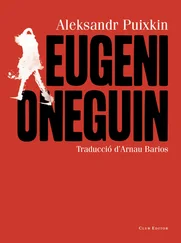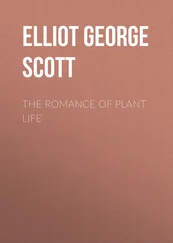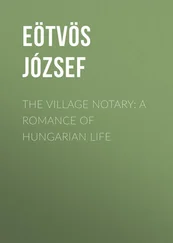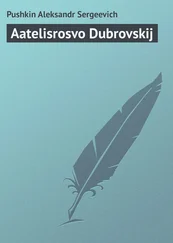Whene'er a brilliant courtly dame
Presents her quarto amiably,
Despair and anger seize on me,
And a malicious epigram
Trembles upon my lips from spite,—
And madrigals I'm asked to write!
But Lenski madrigals ne'er wrote
In Olga's album, youthful maid,
To purest love he tuned his note
Nor frigid adulation paid.
What never was remarked or heard
Of Olga he in song averred;
His elegies, which plenteous streamed,
Both natural and truthful seemed.
Thus thou, Yazykoff, dost arise [48] Yazykoff, a poet contemporary with Pushkin. He was an author of promise—unfulfilled.
In amorous flights when so inspired,
Singing God knows what maid admired,
And all thy precious elegies,
Sometime collected, shall relate
The story of thy life and fate.
Since Fame and Freedom he adored,
Incited by his stormy Muse
Odes Lenski also had outpoured,
But Olga would not such peruse.
When poets lachrymose recite
Beneath the eyes of ladies bright
Their own productions, some insist
No greater pleasure can exist
Just so! that modest swain is blest
Who reads his visionary theme
To the fair object of his dream,
A beauty languidly at rest,
Yes, happy—though she at his side
By other thoughts be occupied.
But I the products of my Muse,
Consisting of harmonious lays,
To my old nurse alone peruse,
Companion of my childhood's days.
Or, after dinner's dull repast,
I by the button-hole seize fast
My neighbour, who by chance drew near,
And breathe a drama in his ear.
Or else (I deal not here in jokes),
Exhausted by my woes and rhymes,
I sail upon my lake at times
And terrify a swarm of ducks,
Who, heard the music of my lay,
Take to their wings and fly away.
But to Oneguine! A propos !
Friends, I must your indulgence pray.
His daily occupations, lo!
Minutely I will now portray.
A hermit's life Oneguine led,
At seven in summer rose from bed,
And clad in airy costume took
His course unto the running brook.
There, aping Gulnare's bard, he spanned
His Hellespont from bank to bank,
And then a cup of coffee drank,
Some wretched journal in his hand;
Then dressed himself… [49] Stanza left unfinished by the author.
Sound sleep, books, walking, were his bliss,
The murmuring brook, the woodland shade,
The uncontaminated kiss
Of a young dark-eyed country maid,
A fiery, yet well-broken horse,
A dinner, whimsical each course,
A bottle of a vintage white
And solitude and calm delight.
Such was Oneguine's sainted life,
And such unconsciously he led,
Nor marked how summer's prime had fled
In aimless ease and far from strife,
The curse of commonplace delight.
And town and friends forgotten quite.
This northern summer of our own,
On winters of the south a skit,
Glimmers and dies. This is well known,
Though we will not acknowledge it.
Already Autumn chilled the sky,
The tiny sun shone less on high
And shorter had the days become.
The forests in mysterious gloom
Were stripped with melancholy sound,
Upon the earth a mist did lie
And many a caravan on high
Of clamorous geese flew southward bound.
A weary season was at hand—
November at the gate did stand.
The morn arises foggy, cold,
The silent fields no peasant nears,
The wolf upon the highways bold
With his ferocious mate appears.
Detecting him the passing horse
snorts, and his rider bends his course
And wisely gallops to the hill.
No more at dawn the shepherd will
Drive out the cattle from their shed,
Nor at the hour of noon with sound
Of horn in circle call them round.
Singing inside her hut the maid
Spins, whilst the friend of wintry night,
The pine-torch, by her crackles bright.
Already crisp hoar frosts impose
O'er all a sheet of silvery dust
(Readers expect the rhyme of rose ,
There! take it quickly, if ye must).
Behold! than polished floor more nice
The shining river clothed in ice;
A joyous troop of little boys
Engrave the ice with strident noise.
A heavy goose on scarlet feet,
Thinking to float upon the stream,
Descends the bank with care extreme,
But staggers, slips, and falls. We greet
The first bright wreathing storm of snow
Which falls in starry flakes below.
How in the country pass this time?
Walking? The landscape tires the eye
In winter by its blank and dim
And naked uniformity.
On horseback gallop o'er the steppe!
Your steed, though rough-shod, cannot keep
His footing on the treacherous rime
And may fall headlong any time.
Alone beneath your rooftree stay
And read De Pradt or Walter Scott! [50] The Abbe de Pradt: b. 1759, d. 1837. A political pamphleteer of the French Revolution: was at first an emigre, but made his peace with Napoleon and was appointed Archbishop of Malines.
Keep your accounts! You'd rather not?
Then get mad drunk or wroth; the day
Will pass; the same to-morrow try—
You'll spend your winter famously!
A true Childe Harold my Eugene
To idle musing was a prey;
At morn an icy bath within
He sat, and then the livelong day,
Alone within his habitation
And buried deep in meditation,
He round the billiard-table stalked,
The balls impelled, the blunt cue chalked;
When evening o'er the landscape looms,
Billiards abandoned, cue forgot,
A table to the fire is brought,
And he waits dinner. Lenski comes,
Driving abreast three horses gray.
"Bring dinner now without delay!"
Upon the table in a trice
Of widow Clicquot or Moet
A blessed bottle, placed in ice,
For the young poet they display.
Like Hippocrene it scatters light,
Its ebullition foaming white
(Like other things I could relate)
My heart of old would captivate.
The last poor obol I was worth—
Was it not so?—for thee I gave,
And thy inebriating wave
Full many a foolish prank brought forth;
And oh! what verses, what delights,
Delicious visions, jests and fights!
Alas! my stomach it betrays
With its exhilarating flow,
And I confess that now-a-days
I prefer sensible Bordeaux.
Читать дальше











